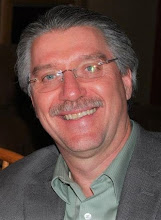Time and God and Us
How does time happen?
Moment by moment like frames of a film, rolling out consecutively so quickly you can't really see them individually?
Like those flipbooks we drew in elementary school – individual pictures that have the appearance of moving as you flip the pages quickly?
The obvious answer is that from our human perspective, time happens just like that. We live moment by moment, measured for everyone the same. An hour for you is an hour for me. Our only actual option, no matter how frustrating it might seem, is to live the moment we are in. We cannot relive the past, though many of us rerun the tape in our heads and our hearts. Nor can we fast-forward into the future, though many of us borrow anxiety that only belongs there.
For those of us on the big ball we call earth, time happens moment by moment. That is how time comes to us, but is that how time actually exists? Are we imposing our finite ability to comprehend on the infinite? How do eternal beings experience time? Or do they experience time at all? And how does that affect us?
Some of the mind disrupting questions are about time travel, parallel universes and the like. (Which for some reason enamors me. "Are we back to the future or forward to the past, Marty McFly?")
Are those questions rooted in the spark of eternity created in all of us, longings that tell us "There must be something more?" In reading the October 26-29 entries in "A Year with C. S. Lewis" the dead guy made me stop and rethink. He states, "We tend to assume the whole universe and God Himself are always moving on from past to future just as we do." (p. 327)
Are you like me in truly believing that God is eternal, meaning He has no beginning or end, but that He is watching time unfold moment by moment, deliberately moving toward a concrete end. He knows how it all turns out and is working toward our good as it progresses toward a massive climax. Makes sense and seems spiritual.
But that is too limited. The eternal nature of God causes Him to experience time as one massive unit, that "past, present and future" are concepts that simply do not apply.
Here's where it really hit me, where it moves from ethereal concept to practical impact on my day. C. S. Lewis proposes that God "does not see humans making their free contributions in a future, but sees them doing so in His unbounded Now." (p. 326) If true, God is not watching time unroll as a motion picture at all, but sees Abraham Lincoln delivering the Gettysburg Address at the same time He sees me accepting a pizza delivery. Deeper – he does not hope that I will make the right decision with my son so that it adjusts his future trajectory, God actually sees the decision and all the ensuing consequences at the same time. Whoa!
Even more impactful was when Lewis applied to this characteristic of God to prayer. What if an event has already been decided and I wish I had prayed for God to intervene? Lewis contends that is not a reason to not pray. Indeed the matter is decided, though I may not know how, such a medical test or a job decision or safety for a loved one. Can the event be changed? No, it has already occurred in the way time happens for us. But my prayers at 4:00 in the afternoon may be the very reason the event occurred as it did at noon. Why? Because God and our prayers are not limited to the way time happens for us.
To be honest, this has fried a few circuits in my brain as I've spent days digesting it. But it has also given me great encouragement and motivation to pray, especially about those things that seem to already be done.
I hope it does the same for you.
"Jesus Christ is the same yesterday and today and forever." Heb 13:8 (NIV)
"I (Jesus) am the Alpha and the Omega, the First and the Last, the Beginning and the End." Rev 22:13 (NIV)
Boldly, Herb
(To listen to Herb via the internet go to http://www.newsongpittsburgh.org/sermons.htm )
Quotes and material taken from "A Year With C.S. Lewis", 2003, Harper Collins, pages 326-329, originally from "Mere Christianity," "Miracles," and "The Screwtape Letters."

No comments:
Post a Comment